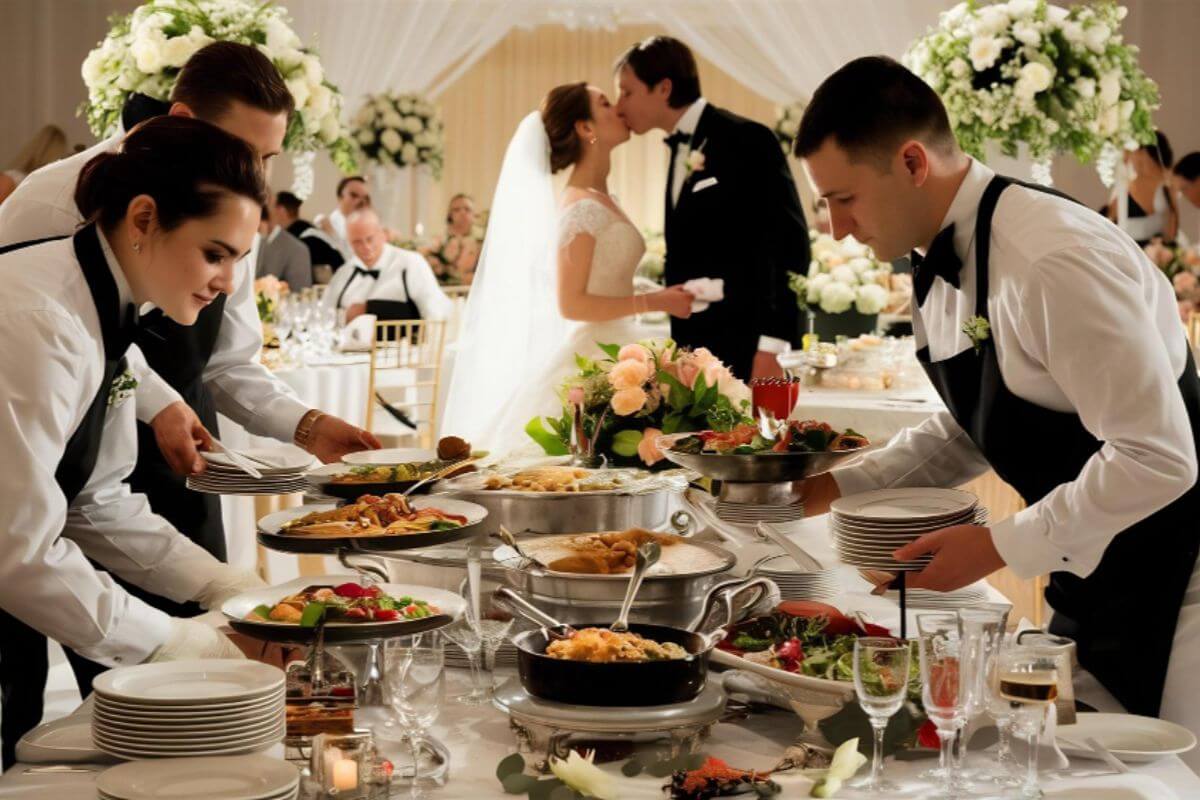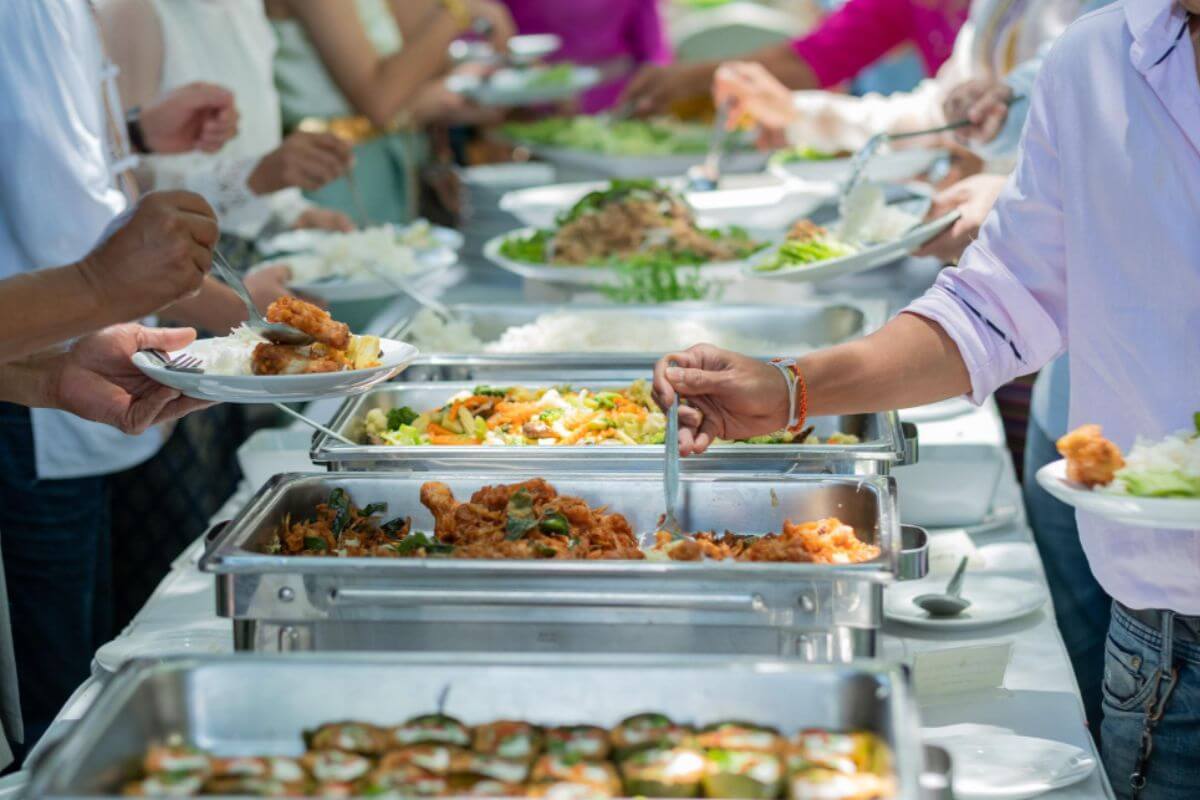How to Accommodate Handicapped Guests

How can I make sure an event is accessible to persons with disabilities?
- All pathways and doorways must be at least 32 inches wide and that the corners are maneuverable.
- The entrances and exits must have wheelchair ramps. If they don’t, then rent out portable ones.
- Bathrooms must have cubicles for the disabled with grab bars.
- There must be elevators or other alternatives for reaching higher or lower floors of the venue. It’s best if the elevator has low controls or an elevator operator.
- Work with the venue manager regarding the accommodations for the disabled.
- Allow such guests to bring a plus one that can help them throughout the event.
- Leave ample space for guests to sit comfortable at a table or pew.
- Have ushers attentively standing by in wait to address any concern a person with disabilities may have.
- There must be handicapped parking
While choosing the best place to celebrate a wedding in Manila, catering to handicapped guests could easily slip out of your mind. Forgetting to make your venue accessible to disabled people could force them to go through inconveniences that could ruin their day and, subsequently, yours as well. You don’t want this type of complication at your wedding if you know you’ll be having guests that are persons with disabilities. Ensure that they will have a fun and stress-free time during your special day by going the extra mile to accommodate them.
Choose an Accessible Venue
Of course, when finalizing a church and reception venue, you would want to conduct an ocular. Usually, this is done to see if it fits your preferences and, more importantly, if it can accommodate your guests. Thus, you should check it for accessibility (the term used for products, devices, services, or environments made especially for the disabled). You should do this for both the reception and wedding venue.
The first few places you should check are the entrance and exit. These should have ramps for those that find it difficult to use stairs.
Then, check the pathway going to the specific room(s) and function hall(s) that you wish to rent. Be sure that there is no obstacle that can hinder a disabled guest. The hallways must also be at least 32 inches wide to have enough room for wheelchairs to pass through comfortably. While you’re at it, measure all the doorways, elevators, bathrooms, and ramps to see if the fit this criteria.
For the bathroom, check to see if there a cubicle for the handicapped. It must have a grab bar for your handicapped guests’ convenience.
If you’re venue has more than 1 floor, then it’s an absolute must that your guests have an alternative to taking the stairs. Check to see if there is another entrance aside from the main one for the higher or lower levels. Also, check the elevators (if any). These must have either low controls or an elevator operator for those in wheelchairs. If you know that you’ll be having a blind guest without a caregiver attending, then check if the elevator has brail.
Lastly, try to avoid booking a historic church as much as possible if you know you will have many elders and/or disabled guests attending. These venues may be beautiful venues, but they were also built during a time where accessibility wasn’t a priority. However, you may still choose to book this type of wedding venue if you can make the space work.
Make the Space Work
Regardless of whether or not you made sure that your venue is accessible, you must be prepared for special cases. Some venues may have accessible facilities, but these were designed around common disabilities. Your guests may have more specific needs. The most common of these special needs come when the wheelchairs and walkers that your handicapped guests are larger than regular ones. Even if you’ve made sure that the ramp is 32 inches wide, it may still be too narrow to such a guest. Other complications include narrow hallways, cramped pews, and maneuverability issues.
But don’t fret just yet. It doesn’t hurt to ask the venue managers what can be done about these. If the venue is a common venue for any family gathering, then the managers would know exactly how to handle guests with specific needs. For sure, they’ve seen it all. Let them know of your guests’ specific needs and they in turn can let you know what they can offer you.
It will also help to warn guests in advance of these complications. Then if it is okay with you, allow them to bring along a guest or caregiver that can help them. This will make them feel more at ease with the situation.
Wheelchair Ramps
If the venue cannot offer any means to address your guests’ accessibility problems, then you can choose either a customized ramp, portable ramps, or a different venue. Customized ramps are good as a carpenter can build exactly what you need; this will depend on the measurements of your guests’ need and the steps/ledges they will need to pass through. Portable ramps, on the other hand, offers mobility and flexibility you may need in case of an emergency.
Seating
At an accessible wedding venue, there should be spaces next to some pews for those in wheelchairs. These should be spacious and easy to get to. Be sure to tell ushers to inform guests on wheelchairs or crutches of these spaces and bring them there if choose to sit there. At the same time, these guests should be given a choice to sit wherever they want.
At the reception, remove chairs at the tables where for the wheel-chaired guest will sit. With a proper seat plan, you should be able to plan ahead of time where these empty spots should be in. Also, be sure to leave ample space in between tables so that maneuvering between them is easy. This will also ensure that sitting at a table will be comfortable.
Lastly, have ushers or waiters assigned specifically to assist persons with disabilities in both venues.
Parking and Transportation
No matter what the situation is for your guests with disabilities, there are two things you must check: the parking and the driveway.
At the parking, you must make sure that there are parking made especially for the handicapped. These are usually marked by the usual handicap parking signs. If this is not available at your venue, then you can assign the parking spots nearest to the entrance for them. Make sure that these have ample space for the guests to be able to exit their car comfortably.
But if these guests choose to get a drop off, then parking won’t be a problem. But you must make sure that the driveway has accessibility as well. If it doesn’t, then you must absolutely have a portable ramp.
For those coming via taxi, you must make sure that taxis or similar transportation services are available going out of your venue.
Key Takeaway
Taking the extra time (and going the extra mile) to make sure the wedding is accessible will ensure that your beloved family and friend with disabilities can celebrate your special day with it. All the trouble will be worth it when everyone enjoys the culmination of love you and your partner share.



